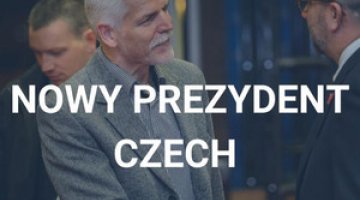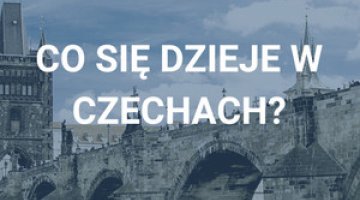Czech-Russian nuclear diplomacy
On 26–29 May, a delegation consisting of politicians and businessmen led by Prime Minister Petr Necas visited Moscow, St. Petersburg, Yekaterinburg and Sochi. While there, they met with President Vladimir Putin, Prime Minister Dmitri Medvedev and the governors of the regions they visited. The pivotal issue was the tender for the construction of nuclear blocs for the Temelin nuclear power plant in the Czech Republic. The MIR.1200 consortium, which is controlled by Rosatom, is competing with the US-Japanese corporation Westinghouse in this tender. Prime Minister Medvedev promised that, should the Russian consortium win, 6 billion euros from the funds invested in the construction of the new reactors would remain in the Czech Republic (approximately 50–75% of the estimated cost of the investment).
The Czech businessmen who accompanied Necas (80 people) signed ten contracts worth around 240 million euros with their Russian partners (including the supply of generators for Russian hydropower plants and the construction of a gas power plant in St. Petersburg). In 2012, Czech-Russian trade reached US$14 billion (an increase of 6%), and was higher than before the economic crisis. Czech exports, which grew 17%, were the driving force which lifted the trade volume (Czech exports to Russia are worth US$6.2 billion; by comparison: Polish exports to Russia are worth US$9.9 billion).
Commentary
- The tender for the construction of two nuclear reactors in Temelin has made Moscow and Washington (and also Tokyo) significantly more interested in the Czech Republic. The Russian and US leaders during their meetings with Czech politicians are openly lobbying on behalf of their respective national companies. Czech politicians, capitalising on this situation, are attempting to broaden the scope of bilateral interests and to conclude contracts which could bring benefits whatever the outcome of the Temelin tender. This fits in with the implementation of the Czech export strategy for 2012–2020, which is focused on non-European markets and economic co-operation with regions in such countries as Russia.
- The results of the initial evaluation of the offers from MIR.1200 and Westinghouse presented in March revealed Westinghouse’s advantage. It remains, however, far from a foregone conclusion; the final outcome will be announced at the end of 2013. Currently, Prague is encouraging both bidders to improve their offers – primarily to reduce the price but also to increase the share Czech firms will have in the construction and to include additional investments in the Czech Republic. The Russians have a clear advantage over Westinghouse as regards connections with the Czech economy, and their offer is given preference by a large part of the management staff in Czech industry. The Russian offer is also favoured by President Milos Zeman. Part of the Czech political elite is however afraid of building too strong a connection with Russia in the energy sector. An essential part of the 6 billion euros promised by the Russian prime minister would go to Czech firms controlled by Russians.
- The emphasis placed by Prime Minister Necas and President Zeman on the economic dimension of relations with Russia is making it difficult for the Czech Republic to protect its reputation as a country which devotes a great deal of attention to protecting human rights and fostering democracy. Necas met with Russian non-governmental organisations and declared his support for them. However, his opinions on Pussy Riot (“a false symbol of struggle for freedom and human rights”) have been received by part of the media as proof of his compromising the ideals which had been associated with Vaclav Havel’s foreign policy.





